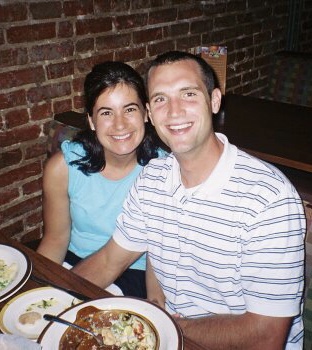My appointment had to go well. I was finally seeing the long-awaited endocrinologist. The same one who refused to see me after a few minute’s delay last month. Now I knew: I had to be in my primary care’s office to have this virtual specialist appointment.
Today would be different. An hour before my earliest check-in time, I showered, put on the pretty dress Evan picked out, and even applied makeup (a rare event in Hawaii). If I was going to hear about the likelihood of my having cancer, at least it would be while looking my best.
As I sat in the parking lot, talking to my dad, I’d hoped his quiet voice could calm my nerves. I couldn’t shake them. In the waiting room, I texted a friend and confessed my inward panic attack. She sent me John 14:27. “Peace I leave with you; my peace I give you… Do not let your hearts be troubled and do not be afraid.” A much-needed pep talk. I knew they would both pray.
I had typed out my medical history, endocrine history, recent symptoms and questions, but felt like that still wasn’t enough. So I took a screenshot and then decided to handwrite it all too in case of a technical issue. Breathe.
Todd thought he might be able to join the appointment in between his own patients. Every noise I heard, I looked up hoping it would be him walking through the door. No luck.
Now in the room, I was flustered. I told the nurse I was really nervous, especially considering what happened last month and that my blood pressure would be high, accordingly. It was. Who knows what other gibberish came out of my mouth. I can be very chatty when I’m terrified. “I’m always nervous to meet a new doctor.”
There are really good reasons for that.
I wish I knew the doctor was online already, listening to the entire conversation. What happened next is why I see a therapist for medical trauma. Instead of the usual progression of questions with a new provider, I quickly realized that I was on trial. Every diagnosis was suspect, specifically hypokalemic periodic paralysis (my type of muscular dystrophy).
The mountains of clear medical evidence proving my disease weren’t in her file. She was fixated on it, even though it’s not her speciality and not the reason for our appointment. This wasn’t a physician curious about a rare diagnosis. This was a detailed inquisition to prove me wrong.
“No. You’re not giving me enough detail,” she cut me off. “Describe exactly how you think your body feels, where it starts, where it goes. You don’t sound like any of the patients I treat.” No kidding.
Instead of talking about my endocrine tumors, I heard myself calmly declaring: “Periodic Paralysis International and the Periodic Paralysis Association both recognize RYR1 as one of the genetic mutations associated with periodic paralysis, in addition to the RYR1 Foundation. In fact, lots of their latest research is spent studying it.”
Suddenly I felt very hot. Why did I take off my neck fan?
I could’ve listed all the tests that have confirmed my diagnosis, or pointed out that I take what would be lethal doses of potassium daily, if I didn’t have this disease. But it’s really hard to think on your feet when you’re defending yourself and would rather be asking about the potentially cancerous endocrine tumor in your abdomen and the one in your brain.
Instead, my to-do list was growing by the moment. As the judge and jury, she demanded evidence. I was the defendant and my own defense attorney. It was clear that building my case and proving myself would be key to getting any help.
What hurt the most was the judgement she made on my appearance. Assuming I’d always been overweight, she postulated out loud what came first: the tumors or the weight. I wondered if showing her pictures of when I was tumor-free would make any difference.
Todd had missed the worst of it. He walked in by the time the doctor and I had jumped up to my last ER visit in April. I was never so happy to have back-up. “Why did I have that abdominal CT?” I was out of juice and needed a minute to gather myself.
By the end, at least there was a plan. Blood tests will have to wait for at least six weeks. I have to come off a few medications before they’ll be accurate. In the meantime, I have files to dig through, scan, and send. It’s a pain, but I can do it.
It’s just the last thing I want to do is bother Dr. Lewis. He’s dedicated himself to helping more patients like me than any other physician. He spends an incredible amount of time with each one. He sends me scripts, helps me find medication insurance refuses to pay for, and answers questions I send from every other doctor I have, free of charge. Why should he have to send documentation proving I have this? What a ridiculous waste of his precious time.
The prayers must have worked because I held back the tears until we were in the elevator. It doesn’t matter how many great doctors I see. The ones that stick with me are those who think I’m crazy and/or this is somehow all my fault.
There’s no time to process what just happened. I’m due for an echocardiogram across the street. “Just another day at the office.”

Oh Laura wish I had known about this appointment I would have been praying. I Love you, but remember the Lord loves you more. Please keep me updated.
Praying for wisdom for the Endocrinologist to help treat this rare disease. So sorry you have to document proof of your diagnosis.